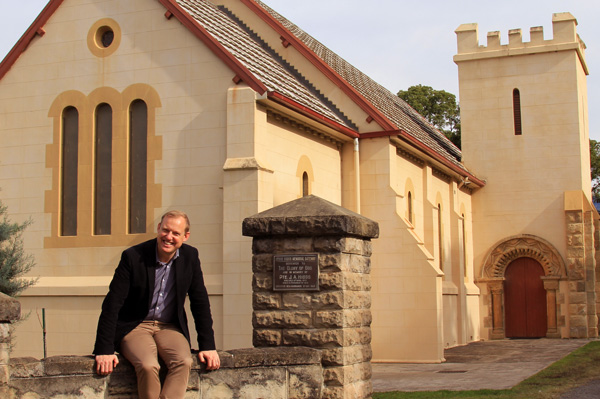More than a rain shelter?

Jamberoo Anglican Church
This weekend we give thanks to God for 150 years of ministry in our building at Jamberoo Anglican Church.
This milestone reminds us that this building has had a special place in our hearts for we who have regularly gathered here since 1867.
It is the place where we have baptised babies and new believers, married new couples, and said farewell to our loved ones.
This makes this building very significant to many generations of Jamberoo Anglicans.
Yet despite the fond memories of our church, the Bible makes it clear that this building does not perform a special religious function beyond helping us gather together in comfort and safety.
Before Jesus’ time, God’s Temple was the place at which God chose to be especially present, and his people gathered there to have priests make sacrifices with special rituals.
But when Jesus came, he transformed the way that we were to meet with God.
Instead of needing a physical building, we now meet with Christ, by his Spirit, as we hear his word in the Bible.
And because of Christ’s once-for-all sacrifice on the first Good Friday, we no longer need to offer sacrifices at an altar in a temple.
What’s more, we no longer need to have a special priest to stand between us and God, because Jesus is that high priest who constantly brings our requests to our heavenly Father.
This means that the reason we meet together in a building like ours is to hear God’s word, pray to him, and to encourage one another through love and good deeds.
When we do this, it will create rich and warm memories that should prompt us to bring thanksgiving to God for all that he’s done in our special building.
And we should be energised to work together to extend the reach of our church to include more and more people in our village and valley.
Happy Birthday, Church of the Resurrection!







 In Old Testament days the new year was recognised by a trumpet blast and a day of rest (modelled on Lev 23:23-25). Originally Ram’s horns were used, probably in time they were replaced by silver trumpets. The trumpet blast was a ‘memorial’ — a reminder of God’s goodness & faithfulness for the year past, also for the year to come. A holy assembly was called (a renewal of covenant obligations to God).
In Old Testament days the new year was recognised by a trumpet blast and a day of rest (modelled on Lev 23:23-25). Originally Ram’s horns were used, probably in time they were replaced by silver trumpets. The trumpet blast was a ‘memorial’ — a reminder of God’s goodness & faithfulness for the year past, also for the year to come. A holy assembly was called (a renewal of covenant obligations to God).
 If you’ve ever chosen to ‘go to the shops’ in order to occupy your time, then you will have experienced some ‘retailtainment.’
If you’ve ever chosen to ‘go to the shops’ in order to occupy your time, then you will have experienced some ‘retailtainment.’